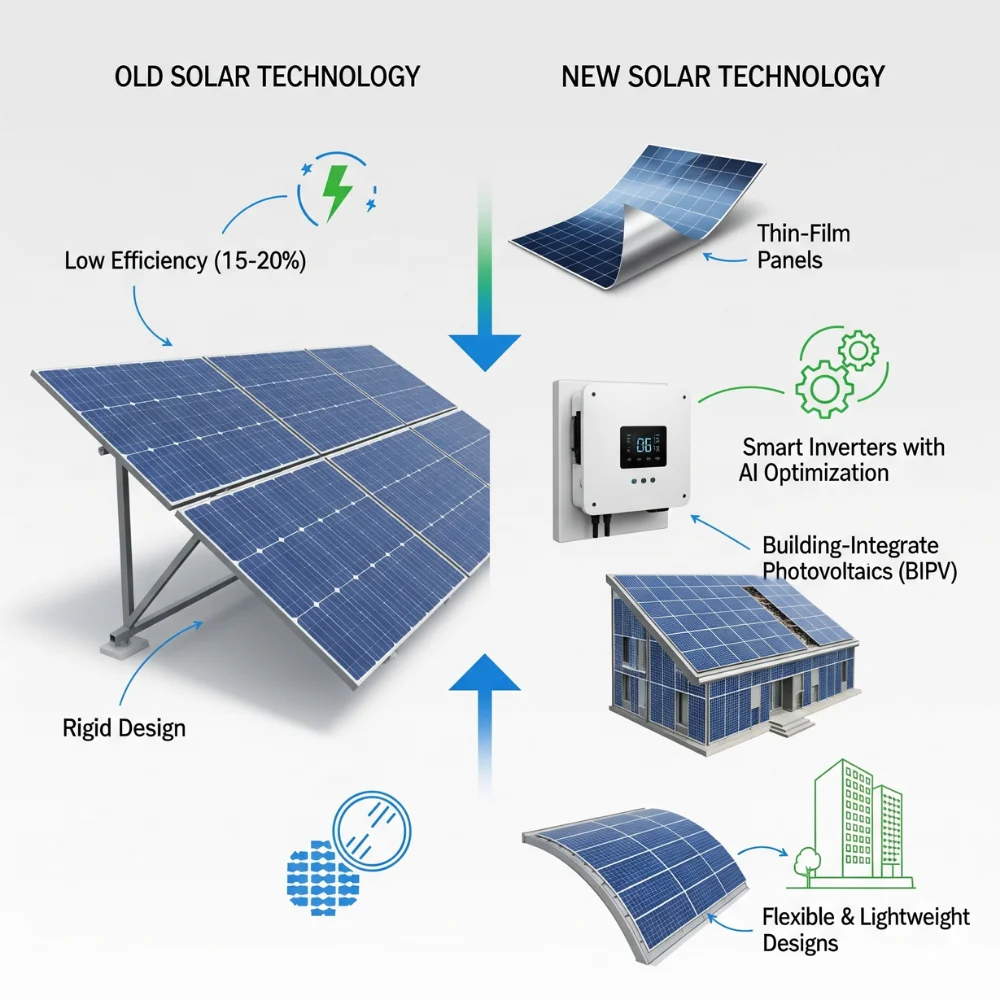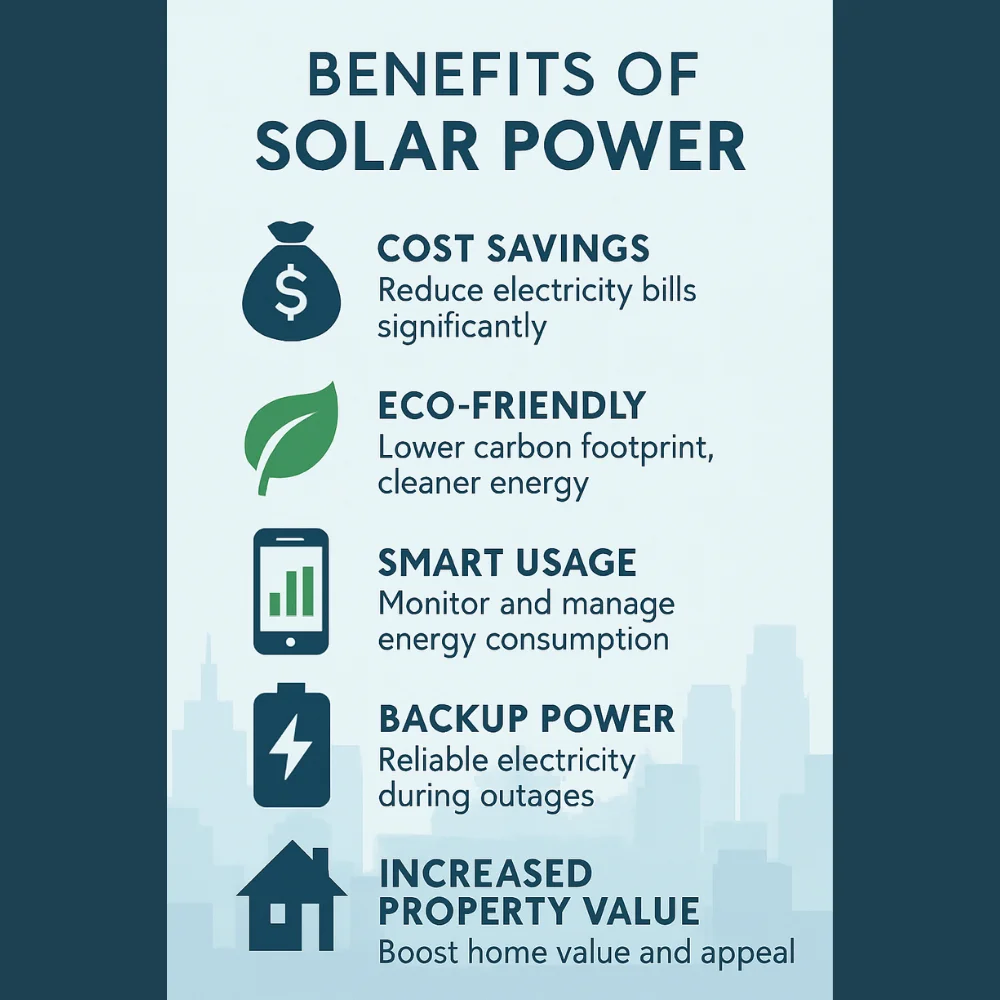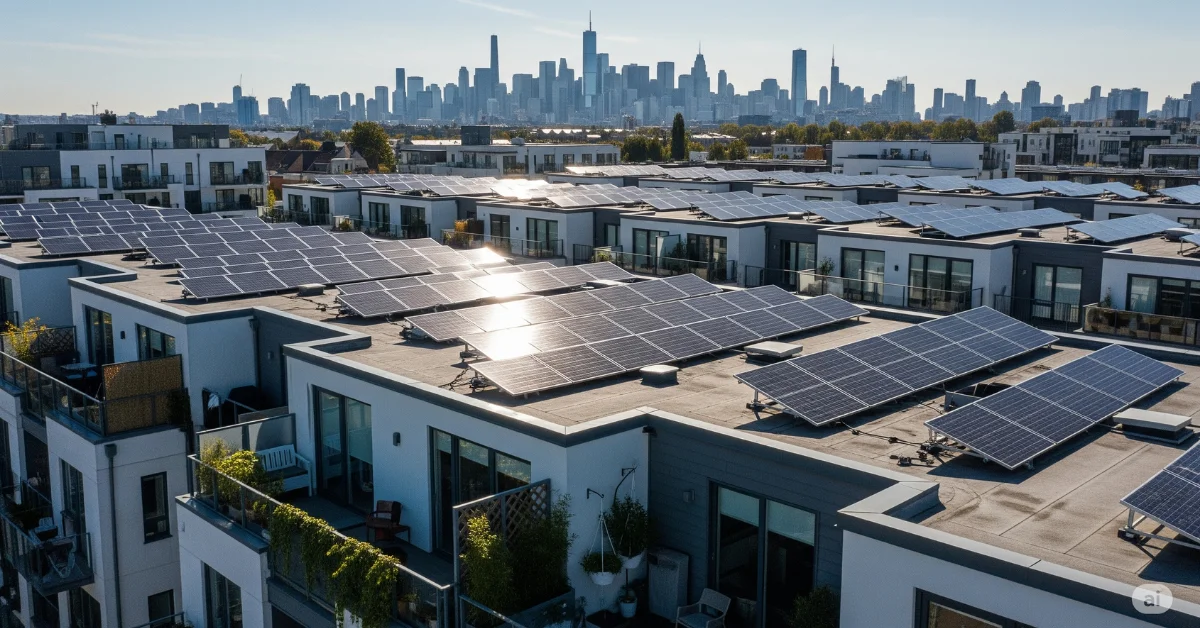The world is changing fast, and cities are growing quicker than ever. With that, our energy needs are also rising. Urban homes today are not just looking for ways to reduce electricity bills but also for eco-friendly solutions. That’s exactly where modern solar panel innovations step in offering smart, sustainable, and efficient solutions tailored for today’s urban lifestyle. It’s smart, affordable, and designed to fit modern city living.
What Is Solar Panel Technology?
Solar panel technology is all about turning sunlight into electricity Solar panels are built using advanced materials designed to capture sunlight and transform it into usable electricity. This renewable energy can run your lights, household appliances, and even power your entire home. Over the years, solar panels have evolved to become more efficient, compact, and budget-friendly.
In earlier days, solar panels were big, bulky, and expensive. But now, thanks to new research and innovation, they are lightweight, sleek, and powerful. They can easily be installed on rooftops, walls, or even in small backyards. And with smart solar systems, you can track your energy use on your phone and make better choices every day.
Why Urban Homes Need Solar Power?
City homes often face issues like high electricity costs, pollution, and limited space. Solar power solves many of these problems in a clean and efficient way. Here’s why:
- Saves Money: Solar panels reduce your electricity bill from day one.
- Eco-Friendly: They don’t release harmful gases or smoke.
- Minimal Maintenance: After installation, they require only occasional cleaning and basic upkeep to keep running efficiently.
- Boost Property Value: Homes with solar panels are more valuable.
- Energy Independence: You rely less on the grid.
In crowded cities where every inch matters, new solar tech allows people to use unused spaces like rooftops to generate clean energy.
How New Solar Tech Is Different?

The latest solar panel technology is a big upgrade from the old systems. It brings many new features that make it ideal for city homes.
1. High-Efficiency Solar Cells
Modern panels use advanced materials like monocrystalline silicon, which allows more sunlight to be turned into electricity. These panels perform efficiently even in low-light conditions or during overcast weather.
2 .Flexible Solar Panels
Unlike the rigid panels of the past, flexible panels can bend and curve. They’re perfect for small rooftops or curved surfaces. You can even install them on RVs, balconies, and awnings.
3. Building-Integrated Photovoltaics (BIPV)
This new concept includes solar materials built right into building elements like windows, tiles, and walls. This way, your home can produce power without even looking like it has solar panels.
4 .Smart Solar Systems
These systems come with smart inverters and monitoring apps. They help you see how much power you’re making and using Some systems also allow you to store energy in batteries and use it when needed.
5.Thin-Film Technology
This tech uses super-thin layers of solar material that can be applied to glass and other surfaces. It’s light, easy to install, and blends well with modern architecture.
How Solar Panels Work in Urban Settings?
Using solar in the city might seem hard at first, but it’s actually very doable with the right system. Here’s how:
- Rooftop Installations: The most common method. Even small roofs can hold enough panels to power an apartment or small home.
- Community Solar: If your building can’t support solar, you can still join a shared solar farm and get credit on your electricity bill.
- Balcony Panels: For renters or people with limited space, small plug-and-play panels can be attached to balconies and connected to a regular socket.
Urban solar solutions are designed to be compact, smart, and easy to use.
Key Benefits of Solar for City Homes

Let’s break down some of the most important benefits of solar power for urban living:
1.Lower Energy Bills
Solar panels can reduce your bill by 50% or more. If you produce more than you use, you might even earn credit from your power company.
2.Smart Energy Use
With smart solar apps, you can track your power use and adjust your habits. For example, you can run heavy appliances when your panels are making the most energy.
3.Sustainable Lifestyle
Going solar means reducing your carbon footprint. This is a big step toward a greener, cleaner planet.
4.Silent and Clean
Unlike generators, solar panels make no noise and don’t release any smoke. This makes them perfect for quiet neighborhoods and high-rise buildings.
Cost and Installation: What You Should Know?
Many people worry that solar panels are too expensive. But the truth is, prices have dropped a lot. Also, many governments offer help in the form of tax credits, rebates, or free installation programs.
Things That Affect Cost:
- Size of your system
- Type of solar panels used
- Battery storage options
- Location and roof condition
It usually takes 4 to 7 years to earn back your investment through energy savings, after which the electricity is basically free.
Battery Storage: Power at Night
One of the biggest issues with solar energy is that the sun doesn’t shine at night. That’s where batteries come in. Modern lithium-ion batteries can store solar energy collected during the day, allowing you to use it at night or during power outages.
With battery storage, you gain more control over your energy. It’s also a great backup during emergencies.
Challenges and Solutions
No technology is perfect, and solar power also has a few challenges:
-
Limited Sunlight in Some Areas
Use high-efficiency panels and battery storage.
-
Upfront Cost
Apply for loans, government subsidies, or leasing options.
-
Space Limitations
Use flexible panels or shared solar projects.
Urban homes can still enjoy solar benefits by using smart planning and the latest tools.
Future of Urban Solar
The outlook for solar energy in urban areas is incredibly promising. Companies are developing ultra-thin solar skins, paint-on solar materials, and AI-based energy management systems. Smart homes will soon run fully on clean, self-produced energy.
City governments are also stepping in. Many are now requiring new buildings to include solar systems. Others offer bonuses or fast permits for solar projects.
The dream of a self-powered, green city is becoming a reality.
Simple Tips Before You Go Solar
- Check Your Roof: Make sure it gets enough sunlight and is in good condition.
- Compare Quotes: Don’t go with the first offer. Get at least 2–3 estimates.
- Ask About Incentives: Look for rebates, tax credits, or special discounts.
- Understand Warranties: Most good systems offer 20–25 years of performance guarantee.
- Think About Batteries: They cost more but add a lot of value.
Final Thoughts
Solar technology has come a long way. Today, it offers practical and powerful solutions for urban homes. Whether you live in a small apartment or a tall building, there’s a solar option for you. It’s clean, it’s quiet, and it helps you save money. Best of all, you become a part of the green energy movement. By choosing solar, you’re not just powering your home — you’re powering a better future.



